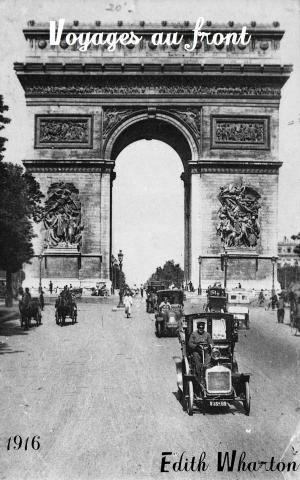Ten Years in India, in the 16th Queen's Lancers, and Three Years in South Africa, in the Cape Corps Levies
Nonfiction, History, Africa, South Africa, Asian, India, Biography & Memoir, Historical| Author: | W.J.D. Gould | ISBN: | 1230000267440 |
| Publisher: | oronto: HUNTER, ROSE & COMPANY, WELLINGTON ST. MDCCCLXXX. | Publication: | September 11, 2014 |
| Imprint: | Language: | English |
| Author: | W.J.D. Gould |
| ISBN: | 1230000267440 |
| Publisher: | oronto: HUNTER, ROSE & COMPANY, WELLINGTON ST. MDCCCLXXX. |
| Publication: | September 11, 2014 |
| Imprint: | |
| Language: | English |
The most pleasant memories of my boyhood are clustered around the old family fireplace, in our home in Brighton, England, when my father, gathering us all around him, with occasionally a few intimate friends, recounted such tales of war as often made me desire I was a man at once, in order that I might there and then enrol myself as one of my country's defenders. He had served, I believe, with distinction, in the Tenth Royal Hussars, as an officer, both under Sir John Moore, and the Iron Duke. He was present at the retreat on Corunna, and, as the old man touchingly gave that narrative, I well remember the big tears course down his cheeks, losing all control of himself, his utterances almost ceasing when he pictured the hour when his heart-broken comrades,
"Buried him darkly, at dead of night."
This was not all, however. Rising to a pitch of the greatest excitement, his language grew bolder and more fierce as he progressed, bringing us all through Salamanca, Talavera, Duoro, Orthes, with the Iron Duke, down to the "King-making Victory,"—Waterloo. He may have been too fond of dwelling on his own exploits—the fierce charge on squares—the hand to hand encounters—sabreing this one and then that one—for, as the night's entertainment closed, for such it was considered, his old arm chair would be many yards away from its original position, driven by force of arms and legs, depicting this cut at a trooper's head, that point at a breast, this guard from an intended cleaver, as he called it, and I have often since thought, how wise my mother was in her forethought to hide away his sword at such times, for I verily believe, so forgetful was he on those occasions, some damage would be done to arms or legs, in his enthusiasm of description.
It is not to be wondered at, this early training though unintended on his part, had its effect on his son in after life. Intended for the profession of a Land Surveyor, I could brook nothing short of following in his footsteps. The scenes plainly set forth in this narrative occurred mostly in India, during the first Afghan war, in 1839, the Maharatta war, and the subsequent war in the Punjaub, from 1843 to 1846, trying times to the army in India. That country is so full of study, in its ancient buildings, mosques, temples, shrines, and manners and customs, that, I have only cursorily glanced at them, and only when positions and incidents are necessary for the full understanding of my movements, I have no doubt, however, that, by a careful perusal of the whole much interest will be created, and more sympathy excited for the men, who, careless of all else, ventured life to uphold the honour of dear old England. In some cases, war is too often employed to further ambition, or in adding some coveted spot to an already overgrown empire. With this, the soldier has nothing to do. The English soldier has been often pitted against great odds, and as there is no retreating in our army, but "to do or die," much more interest centres around him than a soldier of any other country. Kind reader, may I ask you to follow me through, while I endeavour to picture to you such battles as Ghuznee and Cabul, Maharajpoor and Buddewal, Aliwal and Sobraon; and I am sure you will be convinced, as was the old King of Delhi, that men who carried the red cross banner through such actions as these, were really, as he dubbed my old corps, the Sixteenth Queen's Royal Lancers, afterwards, "The pride of England, and the terror of India."
The most pleasant memories of my boyhood are clustered around the old family fireplace, in our home in Brighton, England, when my father, gathering us all around him, with occasionally a few intimate friends, recounted such tales of war as often made me desire I was a man at once, in order that I might there and then enrol myself as one of my country's defenders. He had served, I believe, with distinction, in the Tenth Royal Hussars, as an officer, both under Sir John Moore, and the Iron Duke. He was present at the retreat on Corunna, and, as the old man touchingly gave that narrative, I well remember the big tears course down his cheeks, losing all control of himself, his utterances almost ceasing when he pictured the hour when his heart-broken comrades,
"Buried him darkly, at dead of night."
This was not all, however. Rising to a pitch of the greatest excitement, his language grew bolder and more fierce as he progressed, bringing us all through Salamanca, Talavera, Duoro, Orthes, with the Iron Duke, down to the "King-making Victory,"—Waterloo. He may have been too fond of dwelling on his own exploits—the fierce charge on squares—the hand to hand encounters—sabreing this one and then that one—for, as the night's entertainment closed, for such it was considered, his old arm chair would be many yards away from its original position, driven by force of arms and legs, depicting this cut at a trooper's head, that point at a breast, this guard from an intended cleaver, as he called it, and I have often since thought, how wise my mother was in her forethought to hide away his sword at such times, for I verily believe, so forgetful was he on those occasions, some damage would be done to arms or legs, in his enthusiasm of description.
It is not to be wondered at, this early training though unintended on his part, had its effect on his son in after life. Intended for the profession of a Land Surveyor, I could brook nothing short of following in his footsteps. The scenes plainly set forth in this narrative occurred mostly in India, during the first Afghan war, in 1839, the Maharatta war, and the subsequent war in the Punjaub, from 1843 to 1846, trying times to the army in India. That country is so full of study, in its ancient buildings, mosques, temples, shrines, and manners and customs, that, I have only cursorily glanced at them, and only when positions and incidents are necessary for the full understanding of my movements, I have no doubt, however, that, by a careful perusal of the whole much interest will be created, and more sympathy excited for the men, who, careless of all else, ventured life to uphold the honour of dear old England. In some cases, war is too often employed to further ambition, or in adding some coveted spot to an already overgrown empire. With this, the soldier has nothing to do. The English soldier has been often pitted against great odds, and as there is no retreating in our army, but "to do or die," much more interest centres around him than a soldier of any other country. Kind reader, may I ask you to follow me through, while I endeavour to picture to you such battles as Ghuznee and Cabul, Maharajpoor and Buddewal, Aliwal and Sobraon; and I am sure you will be convinced, as was the old King of Delhi, that men who carried the red cross banner through such actions as these, were really, as he dubbed my old corps, the Sixteenth Queen's Royal Lancers, afterwards, "The pride of England, and the terror of India."















